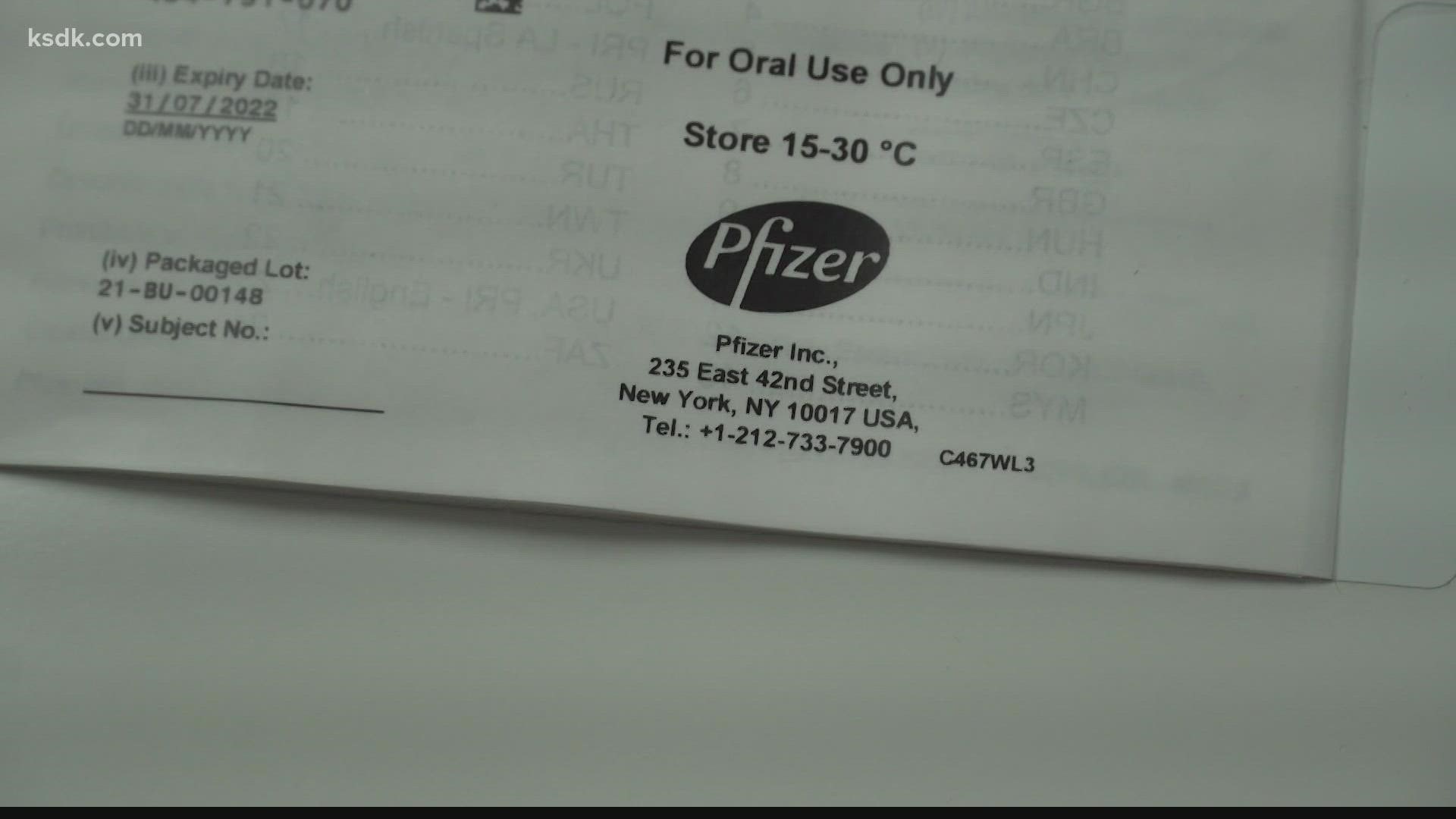ST. LOUIS — Doctors could soon use another tool in their fight against COVID, and they won’t require you to roll up your sleeve.
“We’ve come a long way,” said Dr. Farrin Manian.
Dr. Farrin Manian, chief of medicine at Mercy Hospital, says he’s finally seeing some light at the end of the tunnel 18 months into the COVID pandemic.
“It’s absolutely essential that we still get the shot,” said Dr. Manian. “We want to have as much protection as possible.”
At the moment, the only antiviral available to doctors is known as Remdesivir, but the studies on it are split.
“It comes only in intravenous form and is for people who are really quite sick,” said Dr. Manian. “At least sick enough to be in the hospital because of COVID.”
While Pfizer has two antivirals that are showing promise in clinical studies, a medication made by Merck known as Molnupiravir has Dr. Manian encouraged for our future.
“The main thing is that they work against the virus by stopping its replication,” said Dr. Manian.
That means shortened infection times and prevention of serious cases that lead to death while making people less contagious.
“They may not be affected so much by all of the mutations we've been seeing with the Delta virus and all of the other types of variants, which is great because it would be great to have a drug that we don't have to change every few months because the virus is changing,” said Dr. Manian
While Dr. Manian believes the antivirals will be similar to Tamiflu, which requires a prescription, we wanted to know if they could eventually be used in place of the vaccine.
“It’s great to have both,” said Dr. Manian. “The vaccine is still going to be an essential part of our prevention of COVID, but in case people get sick we can give these drugs early enough to prevent people from coming into the hospital and having complications.”
Unfortunately, these antivirals aren't available locally since they're in Phase 3 clinical trials, but the hope is they could be approved to help the fight against COVID by Christmas.
The Biden Administration has already agreed to purchase 1.7-million doses of the Merck antiviral, but that's contingent on the drug receiving emergency authorization or full approval from the FDA.

